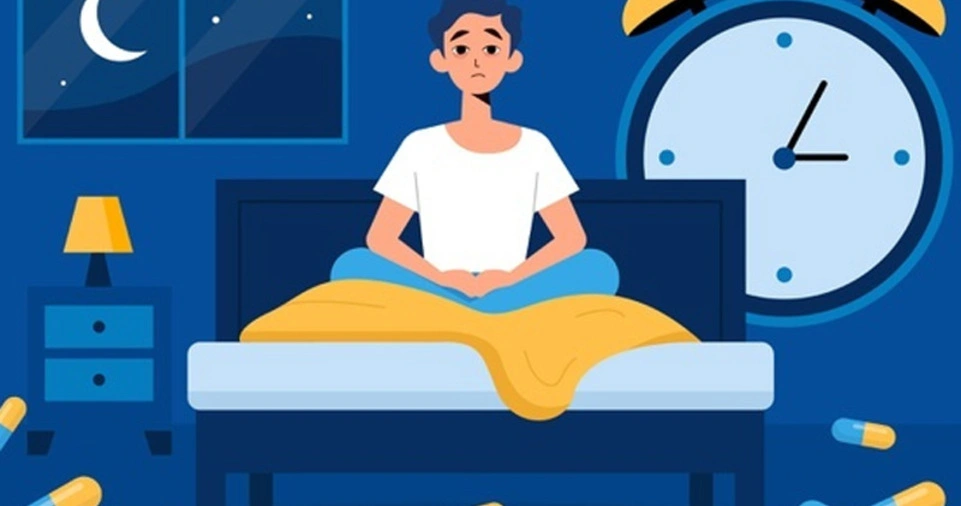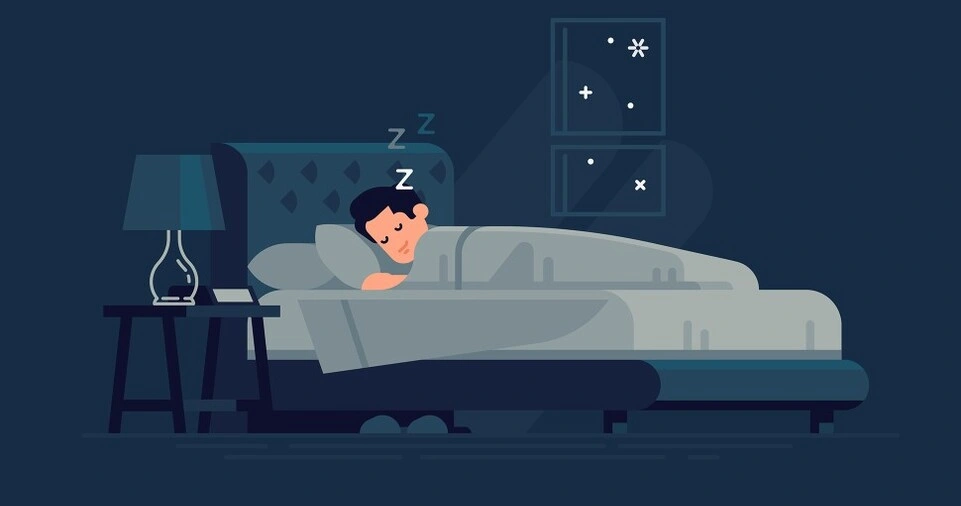Sleep is an essential component of a healthy and productive life. In today’s fast-paced world, many people neglect sleep, assuming that they can function just as well with fewer hours of rest.
However, sleep deprivation leads to a decline in cognitive function, decreased productivity, and long-term health issues.
Proper sleep improves memory, mood, focus, and overall well-being, enabling you to perform better in daily tasks, whether at work, school, or in personal life.
A good night’s sleep is not just about the number of hours you spend in bed but also about the quality of rest you get.
Creating an optimal sleep routine, managing stress, and avoiding certain habits can significantly enhance sleep quality.
This article explores proven strategies to improve sleep and lead a more productive and energetic life.
By following these methods, you can develop a sleep schedule that helps maximize your potential every day.
The Importance of Sleep for Productivity
How Sleep Affects Cognitive Performance
Sleep plays a crucial role in cognitive functions such as memory retention, problem-solving, creativity, and decision-making.
During deep sleep, the brain processes and stores information gathered throughout the day, enhancing learning and recall.
Lack of sleep leads to slower reaction times, difficulty concentrating, and impaired judgment.
The Link Between Sleep and Physical Health
Beyond mental clarity, good sleep is essential for physical health.
Poor sleep patterns are linked to increased risks of heart disease, obesity, diabetes, and weakened immunity.
The body’s repair processes occur primarily during deep sleep, aiding muscle recovery and hormone balance.
Without adequate rest, energy levels drop, making it harder to stay productive.
Emotional Well-Being and Sleep
Sleep directly impacts mood and emotional stability. A well-rested individual experiences lower stress levels and better emotional regulation.
On the other hand, sleep deprivation often leads to irritability, anxiety, and even depression.
Good sleep hygiene promotes mental resilience, helping you handle daily challenges more effectively.
Establishing a Consistent Sleep Schedule
Why a Regular Sleep Routine Matters
A consistent sleep schedule helps regulate the body’s circadian rhythm, the internal clock that dictates when you feel awake and sleepy.
Irregular sleep patterns, such as staying up late on weekends and waking up early during weekdays, can disrupt this natural rhythm, leading to sleep disorders and daytime fatigue.
Tips to Maintain a Fixed Sleep Schedule
- Go to Bed and Wake Up at the Same Time: Aim to sleep and wake up at the same time every day, even on weekends.
- Gradually Adjust Your Schedule: If you need to shift your bedtime, do it in 15-minute increments to allow your body to adapt.
- Avoid Oversleeping: Sleeping too much on weekends can make it harder to wake up early on weekdays.
- Set an Alarm for Bedtime: Just as you set an alarm to wake up, remind yourself when it’s time to wind down for the night.
Creating a Relaxing Bedtime Routine

The Role of a Pre-Sleep Ritual
A relaxing bedtime routine signals your body that it’s time to wind down.
Engaging in calming activities before bed helps reduce stress and ease the transition into sleep.
Activities to Include in Your Routine
- Reading a Book: Choose light reading materials that won’t overstimulate your mind.
- Taking a Warm Bath: A warm shower or bath helps relax muscles and lower body temperature, signaling sleep readiness.
- Practicing Meditation or Deep Breathing: Mindfulness exercises help reduce stress and promote relaxation.
- Listening to Soft Music: Calming sounds or white noise can drown out distractions and help you drift off to sleep.
- Avoiding Stimulating Activities: Avoid intense discussions, work-related tasks, or action-packed entertainment close to bedtime.
Optimizing Your Sleep Environment
How Your Bedroom Affects Sleep Quality
The sleep environment plays a vital role in how well you rest.
Your bedroom should be a sanctuary for sleep, free from distractions and discomfort.
Tips for Creating the Perfect Sleep Environment
- Keep the Room Dark: Use blackout curtains or an eye mask to block out unwanted light.
- Maintain a Cool Temperature: The ideal sleep temperature is between 60-67°F (15-19°C).
- Invest in a Comfortable Mattress and Pillows: A good mattress supports proper spinal alignment, reducing discomfort and sleep disturbances.
- Reduce Noise Disruptions: Use earplugs or white noise machines if noise is an issue.
- Remove Electronics: Keep TVs, smartphones, and laptops out of the bedroom to avoid blue light exposure.
Limiting Stimulants and Heavy Meals Before Bed
The Effects of Caffeine and Nicotine on Sleep
Caffeine and nicotine are stimulants that interfere with sleep.
Consuming these substances late in the day can lead to difficulty falling asleep and frequent awakenings.
- Avoid Caffeine After 2 PM: Caffeine stays in your system for up to 6 hours, so it’s best to limit intake in the afternoon.
- Quit or Reduce Smoking: Nicotine is a stimulant that can disrupt sleep patterns.
- Be Cautious with Alcohol: While alcohol may initially induce sleep, it often leads to fragmented rest and early awakenings.
The Impact of Late-Night Eating
Eating heavy meals before bed can cause discomfort, acid reflux, and disrupted sleep.
- Opt for Light Snacks: If you’re hungry before bed, choose small snacks like yogurt, bananas, or nuts.
- Avoid Spicy and Fatty Foods: These can cause indigestion and disrupt sleep quality.
The Importance of Regular Exercise

How Exercise Improves Sleep
Regular physical activity enhances sleep quality by reducing stress and promoting deeper rest.
Exercise helps regulate sleep hormones and body temperature, making it easier to fall asleep and stay asleep.
Best Practices for Exercising for Better Sleep
- Exercise Earlier in the Day: Morning or afternoon workouts are best for promoting sleep.
- Avoid High-Intensity Workouts Before Bed: Intense exercise close to bedtime may leave you too energized to fall asleep.
- Incorporate Relaxing Activities: Yoga and stretching can help calm the body and mind before bedtime.
Managing Stress and Anxiety for Better Sleep
The Connection Between Stress and Sleep
Chronic stress and anxiety can make it difficult to fall asleep or stay asleep.
Racing thoughts and an overactive mind keep you awake, leading to sleep deprivation.
Techniques to Reduce Stress Before Bed
- Practice Meditation and Deep Breathing: These techniques help relax the mind and body.
- Journal Your Thoughts: Writing down worries and to-do lists can help clear your mind.
- Engage in Progressive Muscle Relaxation: Tensing and relaxing different muscle groups can ease physical tension and promote relaxation.
Reducing Screen Time Before Bed
The Impact of Blue Light on Sleep
Electronic devices emit blue light, which suppresses melatonin production and disrupts sleep patterns.
Tips for Minimizing Screen Exposure
- Turn Off Devices 30-60 Minutes Before Bed: Reduce screen time before sleep.
- Use Night Mode: Many devices offer blue light filters to reduce exposure.
- Opt for Alternative Activities: Read a physical book or practice relaxation techniques instead of using screens.
Seeking Medical Help for Sleep Disorders
If you experience chronic sleep problems, it may be due to an underlying medical condition such as insomnia, sleep apnea, or restless leg syndrome.
Consulting a healthcare professional can help identify and address sleep disorders.
Conclusion
Improving sleep quality is essential for a more productive and healthier life.
By following a consistent sleep schedule, creating a relaxing bedtime routine, optimizing your sleep environment, and managing stress, you can enhance your overall well-being.
Prioritizing good sleep habits will lead to increased focus, better mood, and improved physical health.
Start implementing these strategies today to wake up refreshed and ready to conquer your day!

